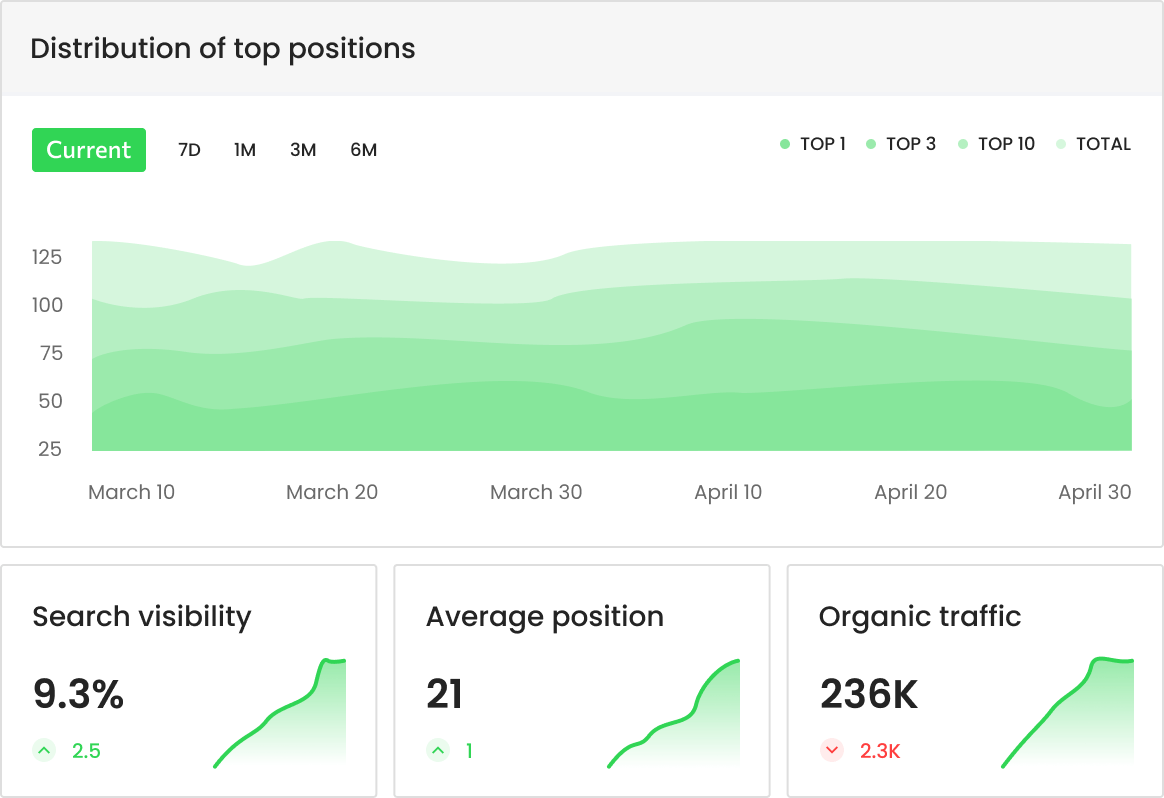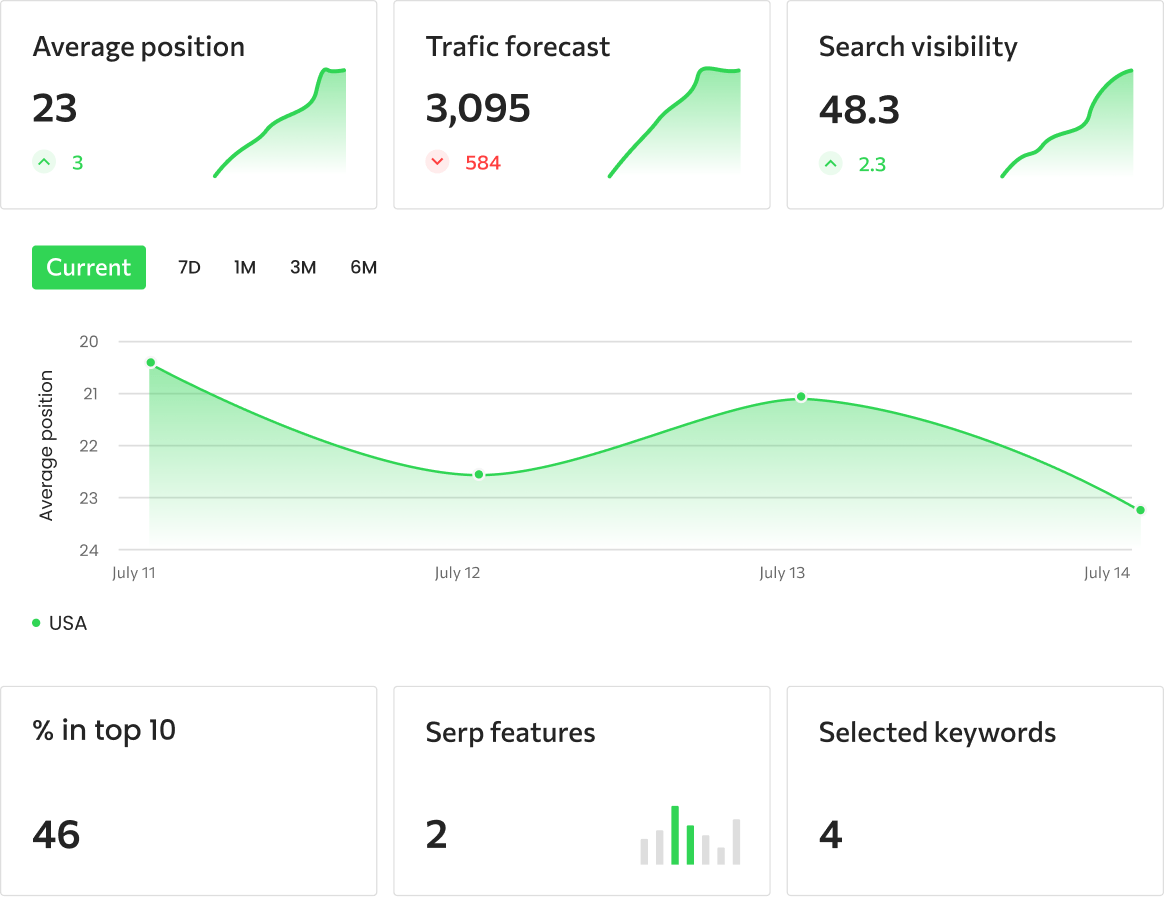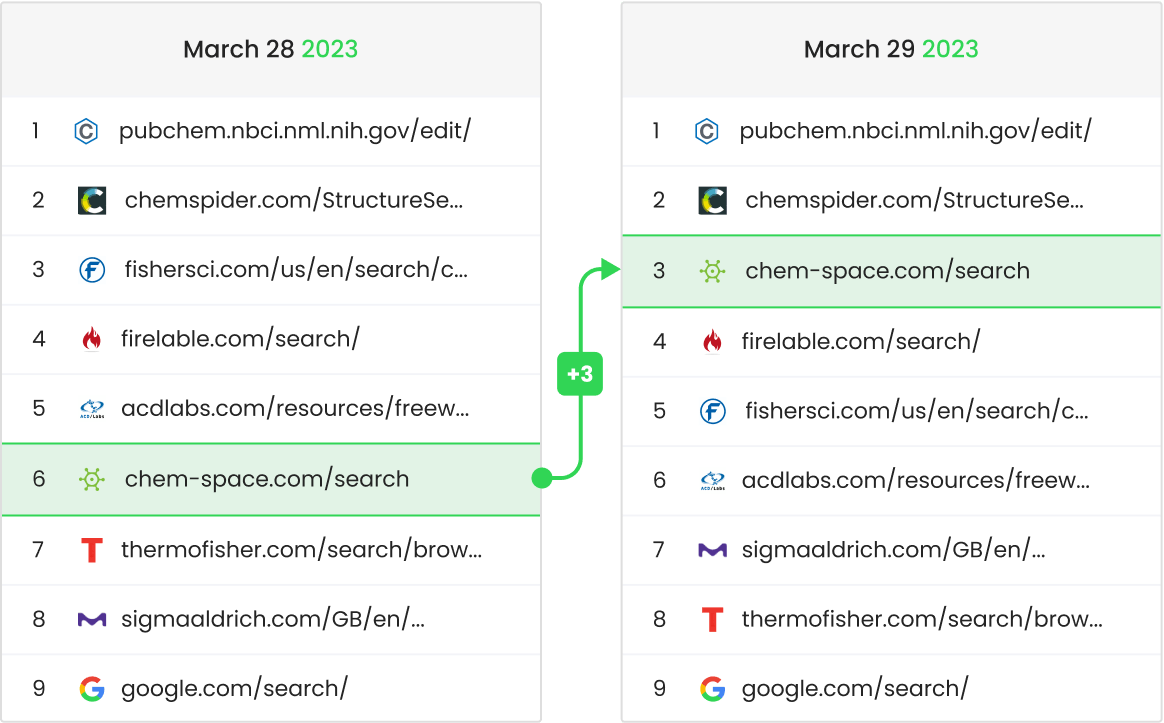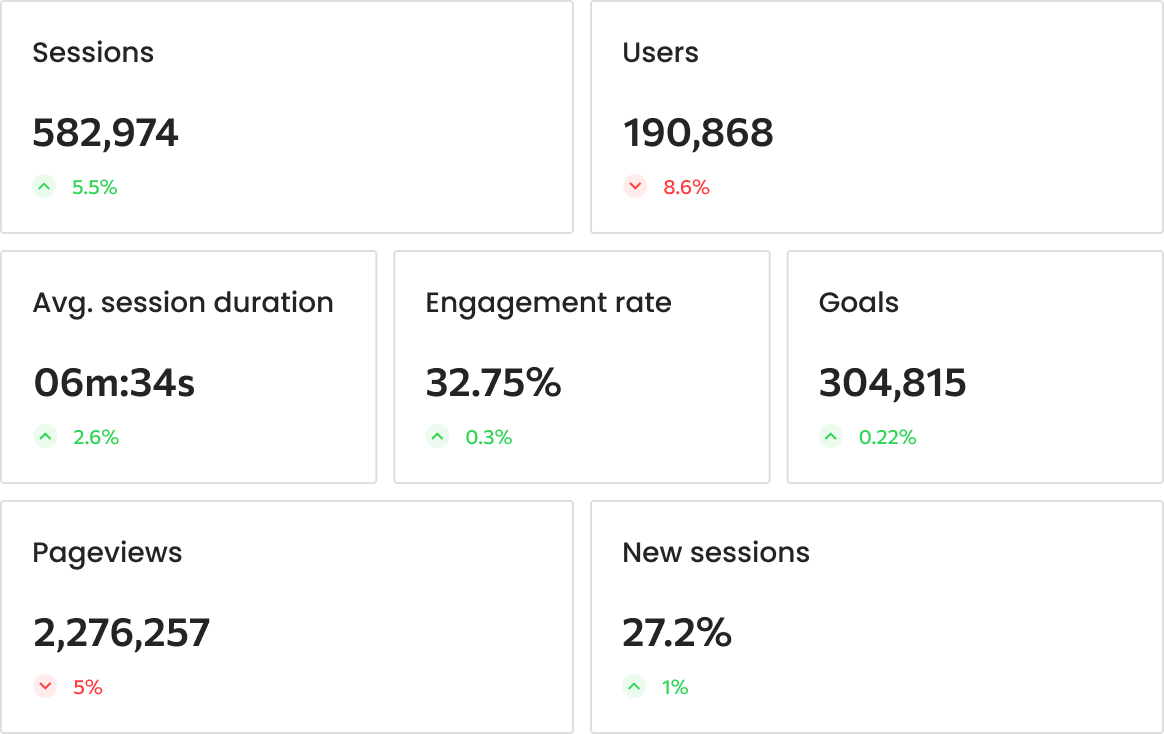Keyword Ranking Checker
Maximize your website’s potential with the Keyword Rank Checker, brought to you in collaboration with our partners at SE Ranking. Input your data, check rankings, and dominate search engine results!

Discover the Power of Checking Keyword Rankings
With the Keyword Rank Checker, you can effortlessly monitor your website’s performance across all major search engines and in multiple locations. Whether it’s Google, Bing, Yahoo, or beyond, this tool empowers you to optimize your SEO strategy on a global scale. Stay ahead of the game and capture opportunities across diverse markets.
The Keyword Rank Checker tool provides you with 100% accurate data, empowering you to make strategic decisions with confidence. Gain a competitive edge by tracking your keyword rankings precisely, identifying trends, and optimizing your SEO efforts. Unlock the benefits of its accuracy and elevate your online presence today.
Effortlessly analyze keyword data and track competitors with the Rank Checker tool. Access metrics alongside keyword positions for a data-driven SEO strategy. Select the scanning frequency and depth and customize the interface to optimize your workflow. Dive deep into insights, gain a competitive edge, and drive exceptional results with ease.
Explore In-Depth Keyword Ranking Data
The Keyword Rank Checker provides access to comprehensive information on ranking positions of the selected keyword. A detailed chart displays crucial data such as the average position, traffic estimation, search visibility, percentage in the Top 10, and SERP features. This wealth of information empowers you to better understand your keyword rankings and make data-driven decisions. Additionally, you can discover comprehensive details by clicking on a keyword’s ranking position. Access information such as the date the URL was first found, the specific page ranking for the keyword, live SERP results, and a cached copy of the SERP. Use these valuable insights to enhance your SEO strategy.
Explore In-Depth Keyword Ranking Data

Uncover Competitive Insights
Access the top 100 sites for each query added to your project. Stored for one year from project creation, this data aids in evaluating keyword competition, identifying rising competitors, and tracking competitor dynamics. Discover both established players and emerging newcomers, gaining valuable opportunities to strategize effectively. Evaluate the competition’s progress, uncover potential threats, and capitalize on emerging trends. With a comprehensive analysis of the top 100 sites, gain a competitive edge and stay ahead in the ever-evolving search landscape. Make informed decisions and position yourself for success in the search engine rankings.
Uncover Competitive Insights

Unleash the Power of Analytics and Traffic
The Analytics and Traffic module empowers you to analyze project dynamics comprehensively. Dive into website rankings, search engine traffic, snippet attractiveness, and data from Google Analytics and Google Search Console. Discover valuable insights to optimize your SEO strategy effectively. Explore the SEO Potential tool, designed to evaluate the potential of your website or that of your clients. Uncover opportunities for growth, identify areas for improvement, and make data-driven decisions to propel your website’s success.
Unleash the Power of Analytics and Traffic

Transparent Pricing with Generous Limits
Our pricing plans offer transparent options with generous limits, ensuring you get the most value for your investment.
Essential
For freelancers and newbies
PRO
For small agencies and teams
Business
For mid-size agencies and businesses
Hear from our Satisfied Customers
Read glowing reviews from satisfied customers who have experienced the power of the Keyword Rank Checker.
What is the Keyword Rank Checker Tool
The Rank Checker is a powerful tool used to monitor and track the ranking positions of keywords in the search engine results. It provides accurate and up-to-date data on how your website or specific pages are performing in search engine rankings. You can assess your SEO efforts, identify keyword trends, analyze competitors, and make data-driven decisions to improve your search visibility. Whether you’re an SEO specialist, website owner, or digital marketer, the Keyword Ranking Checker tool helps you stay on top of your keyword rankings and optimize your online presence for better organic search performance.
What the Keyword Rank Checker Does
The Keyword Rank Checker online is an indispensable tool for SEO professionals and agencies seeking to enhance their online presence. Designed to provide accurate and real-time data, this online tool facilitates keyword tracking and empowers users with comprehensive insights. This tool helps elevate your SEO efforts by offering:
- Accurate Data: Access reliable and up-to-date keyword ranking data, enabling you to make data-driven decisions and prioritize your SEO efforts effectively.
- Comprehensive Insights: Dive deep into keyword insights, such as average position, search visibility, and traffic forecast. Uncover opportunities for growth, identify trends, and refine your SEO strategy accordingly.
- Competitor Analysis: Track and compare your keyword rankings with competitors, analyze their strategies, and identify emerging competitors. Stay ahead of the competition and adjust your approach to achieve better rankings.
- Customization Options: Customize the scanning frequency and depth to suit your specific needs. Automate the process of tracking keyword rankings, saving time and improving overall efficiency.
What are the Benefits for SEO Specialists and Agencies
By leveraging accurate data insights, competitor analysis, customization options, and comprehensive insights, you can make data-driven decisions and optimize your website’s search visibility. SEO Specialists and Agencies can enjoy the following benefits from the Keyword Rank Checker:
- Time-saving Solutions: Streamline your workflow with an all-in-one platform, eliminating manual tracking and consolidating data in a centralized tool. Boost productivity and focus on strategic SEO initiatives.
- Client Reporting and Transparency: Generate comprehensive reports showcasing keyword rankings, progress, and trends. Demonstrate the value of your SEO services to clients with transparent and actionable insights.
- Measurable Results: Leverage accurate data to drive your SEO strategies. Identify high-performing keywords, optimize your website’s visibility, attract organic traffic, and achieve higher rankings with a data-driven approach.
Use the Keywords Rank Checker tool to unlock your website’s true potential, improve your SEO efforts, and drive exceptional results. Stay ahead of the competition, make informed decisions, and elevate your online presence to new heights.
FAQ
Does the Keyword Rank Checker support mobile rankings?
Yes,the Keyword Ranking Checker supports tracking keyword rankings on mobile devices as well. In today’s mobile-driven world, it’s crucial to understand how your keywords perform on mobile search engines. The Tracker provides insights into both desktop and mobile rankings.
Can I track keyword rankings across different search engines?
Absolutely! The Keyword Ranking Checker supports tracking keyword rankings across a wide range of popular search engines, including Google, Bing, Yahoo, and more. This allows you to gain insights into your keyword performance across various search engine platforms and tailor your strategies accordingly.
Is there historical data available for tracking keyword rankings?
Yes, the Keyword Ranking Checker stores historical data, allowing you to track keyword rankings over time. This feature enables you to analyze trends, evaluate the effectiveness of your SEO efforts, and make data-backed decisions for your future strategies.
Is there a limit to the number of keywords I can track?
The specific limit of keywords you can track depends on the plan you choose. We offer flexible pricing plans with different keyword tracking limits to suit your needs. Whether you have a small website or a large-scale SEO project, we have a plan that can accommodate your keyword tracking requirements.
Is my data secure and confidential?
We prioritize the security and confidentiality of your data. We have robust measures in place to ensure that your information is protected and kept strictly confidential. Your data is securely stored and will never be leaked to public research tools.

